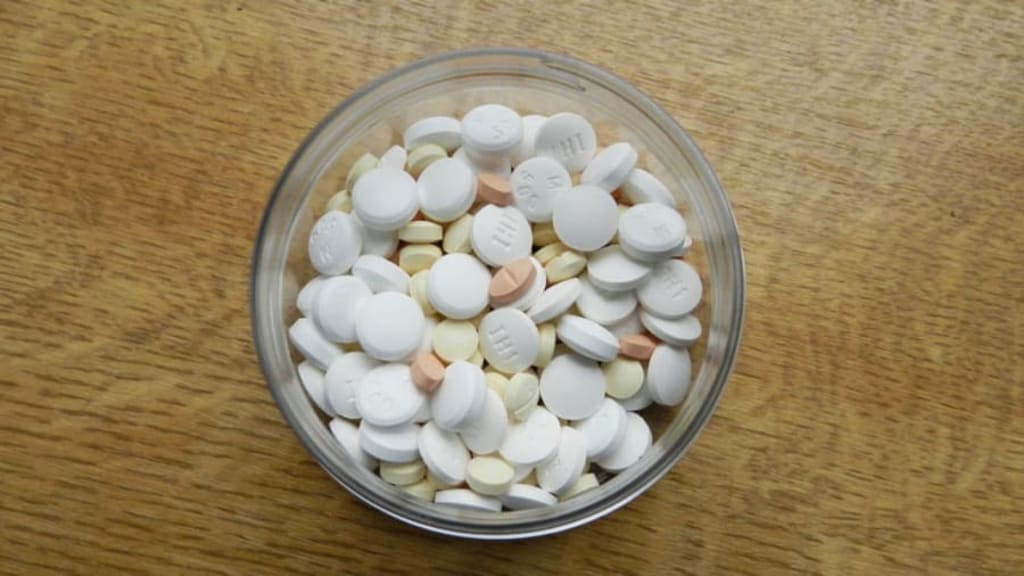How low dose naltrexone helps in managing HIV/AIDS?
Treatment of HIV/AIDS with the help of low dose naltrexone.

In this article, we are going to thoroughly understand HIV and AIDS, their symptoms, causes, diagnosis, and their treatment through Low Dose Naltrexone (LDN). For this purpose let’s first get to know HIV, AIDS, and the difference between them.
What is HIV?
HIV stands for human immunodeficiency virus. It is a virus that attacks the immune system of the human body and destroys the white blood cells which are also known as T-helper or CD4 cells. HIV destroys these cells and replicates itself rapidly. As more of these cells are damaged, CD4 makes more copies of itself, weakening the immune system. After a couple of years, the immune system gets so damaged that it can no longer defend the body against illnesses or diseases. HIV is divided into the following two types:
1. HIV-1
2. HIV-2
What is AIDS?
Acquired Immune Deficiency Syndrome is abbreviated as AIDS. It is basically the last stage of HIV and occurs if HIV is left untreated for a long period of time. A person gets AIDS if his or her immune system is too weak to fight infections or diseases. AIDS will surely lead to death eventually as it can no longer avert opportunistic infections.
Understanding the difference between HIV and AIDS
Basically, AIDS is the last stage of HIV where it is no longer treatable and will eventually cause the death of the person suffering from it. A person does not develop AIDS as soon as he or she acquires HIV, in fact, it may take a couple of years before the development of AIDS. People who have HIV and are taking regular medications for its treatment have a lower risk of developing AIDS.
Causes of HIV
The human immunodeficiency virus (HIV) is caused due to the spread of infected body fluids from one person to another. The following are the means of acquiring HIV:
Unprotected Sexual intercourse
You have a chance to get infected through sexual intercourse if your partner is infected with the disease. The infected vaginal secretions or infected semen may geet into you from your partner through vaginal sex.
Sex
Anal sex or oral sex with an infected person can cause HIV. The virus can enter your body from the other person through the tears that may develop in your rectum during vigorous sexual activity or mouth sores.
Blood transfusions
The virus can spread through blood transfusions. In order to prevent this, screening must be performed on the blood before transfusing it into another person.
Pregnancy, delivery, or breastfeeding
Women who have HIV can pass it to their babies during pregnancy, delivery, or even breastfeeding. Getting treatment at the time of pregnancy can help to lower the risk of transferring the disease to babies.
Interaction with people using IV drugs
Sharing needles with people using IV drugs puts you at a higher risk to develop HIV. This exposes you to the blood droplets of the other infected person.
Sexually Transmitted Infections (STI’s)
Having Sexually Transmitted Infections makes you prone to develop HIV more easily. It opens the sores on your genitals that can act as a gateway for the spread of viruses.
Symptoms of HIV
The symptoms of HIV keep varying depending upon what stage of infection it is. Following are the stages of HIV and their symptoms:
Acute HIV
People who get infected with HIV initially show symptoms of cold and flu as soon as the virus enters the body. These symptoms are so mild that you might not even notice them. Due to this, it is left untreated and leads to the next stage. It lasts for up to a few weeks and its symptoms are:
● Cough
● Flu
● Sore throat
● Fever
● Mouth sores
● Diarrhea
● Weight loss
● Headache
● Pain in muscles and joints
● Night sweats
● Swelling in lymph glands
Chronic HIV
This stage of infection comes when acute HIV remains untreated. During this stage, the symptoms remain the same as of the first stage and it may last up to a few years.
Symptomatic HIV
If the second stage of HIV remains untreated as well, it leads up to this stage. Till now, your immune system is destroyed more than you can imagine. You might experience all the previous symptoms with the addition of the following:
● Fatigue
● Infections such as thrushes, herpes, pneumonia, etc.
Advancement towards AIDS
The fourth and final stage of HIV is AIDS. When HIV is left untreated for about 8-10 years, it turns into AIDS. By then, the immune system is severely damaged and makes you prone to develop opportunistic infections and cancers. The symptoms of AIDS include:
● Sweats
● Chills
● Chronic diarrhea
● Recurring fever
● Spotting or appearance of lesions on tongue or mouth
● Excessive weakness
● Persistent fatigue
● Rashes or bumps on the skin
Using Low Dose Naltrexone (LDN) to treat HIV/AIDS
Low Dose Naltrexone is an opioid receptor that is known to treat numerous health conditions in people. Researchers and doctors have used it on patients suffering from HIV/AIDS. The patients and doctors have claimed that LDN has shown remarkable improvement in their health condition by balancing the CD4 counts. This in turn delays progression to AIDS. Low Dose Naltrexone (LDN) has been seen to improve the symptoms of HIV without causing any serious side-effects.
The Harbor Compounding Pharmacy provides a wide range of low dose naltrexone. They can make customized naltrexone for you with your prescription. You can visit their website or contact the Harbor Compounding Pharmacy for more information.
About the Creator
Harbor Compounding pharmacy
Harbor Compounding Pharmacy in California to provide better health solutions. The aim of this health pharmacy is to provide solutions to all health-related issues. It provides treatment for all diseases and health counseling.






Comments
There are no comments for this story
Be the first to respond and start the conversation.